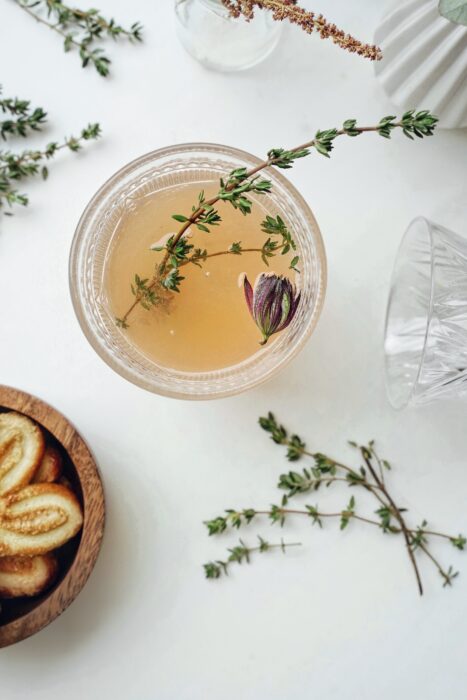Gut health is such a hot topic; for anyone who’s struggled with gut issues you’ll appreciate just how much gut health can have huge implications for our mental health, cognitive health, immunity and autoimmunity, weight, and all round quality of life.
Whilst gut health is complex, and not one to self-treat with the aid of Dr Google, here are a few home truths you need to hear.
1) Gut troubles doesn’t mean you need to quit veganism, it means that you need to find a health practitioner who’s vegan literate.
If you keep up with the Youtube scene, you’ll know that there were many Youtubers who were vegan and introduced animal products back into their diets due to digestive troubles.
In many cases these youtubers were following very restrictive, unbalanced vegan diets, and did not have an educational background in health or nutrition. Some of them were also putting themselves on unsupervised one month water fasts, drank their own urine and stared directly at the sun; these are not people whose advice I’d recommend. Additionally, I didn’t hear of them receiving support from any vegan-literate health care providers, who instead recommended they reintroduce fish or eggs since rumour has it these food are necessary for adequate protein and must be the magic bullet to health. In many cases, when these youtube stars ate these food, they experienced a reduction in their symptoms, and here’s why:
The answer does not lie in the deficiency of these “magic” animal foods, but instead the fact that these foods are low reactive when somebody is dealing with certain underlying digestive health conditions. Usually unprocessed, high fibre plant foods are the healthiest foods on the planet, but for someone who’s struggling with a health condition such as SIBO, the body reacts poorly to these foods leading to pain and bloating. The problem is not with a vegan diet as such, and in fact it is possible to treat SIBO and its underlying causes, whilst still following a vegan diet- you just need the right health practitioner to work with.
2) The NUMBER ONE determinant of your gut diversity
My personal experience is that one of the MANY benefits of a plant based diet has been that my digestion has been incredible.
Anecdotes aside, if you’re looking for exceptional gut health you cannot beat a whole food plant based diet. The American Gut project is the largest international microbiome project, collecting over 15,000 microbiome samples from around the world. What did they discover to be THE most important determinant of your microbiome’s diversity? The number of different whole plant foods the person eats.
High microbial diversity of the gut is considered a good sign of a “healthy gut”, since lower bacterial diversity has been seen in people with inflammatory bowel disease, coeliac disease, type 1 and 2 diabetes, obesity, atopic eczema, arterial stiffness and psoriatic arthritis.1
This is just one of the ways in which a well-planned vegan diet promotes long term health. For those NOT suffering from any serious gut problems, challenge yourself to add as many different types of plant foods into your daily meals as possible. One good way to do with this is to experiment with herbs and spices; not only are these super antioxidant rich but they can make the most simple of meals totally delicious.
3) Restrictive diets may mask symptoms, rather than solve them, and are not for the long term.
Restrictive diets tend to be the first treatment for conditions such as SIBO. Whilst this is generally necessary, can minimise symptom, make life bearable and can starve off bacterial overgrowth, this alone is simply not a long-term treatment strategy. Restrictive diets will naturally reduce microbial diversity in the gut, because when these microbes don’t have their usually food supply, they simply won’t stick around. In the case of animal foods this can be a REALLY good thing since they foster unhealthy bacteria, however, in the case of health-promoting plant foods this is not conducive to long-term health. These healthy foods NEED to be reintroduced, and they need to be reintroduced slowly to reintroduce the species that like to eat them, otherwise simply you’re selling your body short.
In the case of any gut problems we need to determine and treat the underlying cause.
Some of the many causes of SIBO, which drives around 60% of IBS cases include: antibiotic use, gastroenteritis, low stomach acid, coeliac disease, gut motility issues (this can be due to a thyroid condition), ileocecal valve disfunction, stress, poor diets, medications and type 2 diabetes.
Note: Whilst a high-fibre vegan diet can be extremely difficult for someone to tolerate whilst battling SIBO, it is not one of the causes
4) Antimicrobials are not for the faint hearted
It’s become fairly common for people to take herbal antimicrobials as the first response to any gut problems they may have. There’s a misassumption that because they’re natural, they’re harmless. This is simply not true. Not only is it quite possibly the wrong treatment for you, but it’s also going to destroy both good and bad bacteria (possibly making matters much worse) AND it’s not tackling why the problem exists in the first place.
Gut health treatment, like ALL health treatment, should be individualised, based on the best balance of evidence with appropriate investigations, and aiming to deal not only with the symptoms but the cause, so that the problem does not keep resurfacing. Blindly, obliterating the gut with an antimicrobial grenade does not seem like the best possible treatment for something as sensitive, and as critical to all facets of your health as the gastrointestinal tract.
If you’d like help tackling your IBS from a plant based practitioner, book in for a consultation, otherwise read The Power of The Gut to find out more about WHY we should LOVE our guts.
References
Valdes AM, Walter J, Segal E, Spector TD. Role of the gut microbiota in nutrition and health. BMJ. 2018;361:36-44. doi:10.1136/bmj.k2179





Leave a Reply